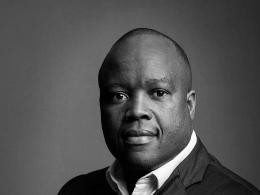The healthcare sector is poised for an eventful 2018 as medical devices and pharmaceutical firms await key policy announcements, more companies float initial public offerings and investors continue to chase opportunities in the single-specialty segment.
The year could also see healthcare services deepening its wings into regional markets as big hospital chains look to consolidate and technology-driven firms help break barriers to penetrate areas beyond the metros.
“We expect growing interest in healthcare models that are more tuned and geared for regional markets and low-cost models, both on the delivery and product side,†said Amit Varma, managing partner at healthcare-focussed fund Quadria Capital.
Industry experts feel the market could turn more rational as investors weigh in regulatory changes related to capping of prices for medical devices and quality issues at plants of domestic drug makers constantly raised by the US Food and Drug Administration.
“Healthcare continues to be one of the few sectors where almost all private equity investors have made good returns,†said VP Rajan, associate director at investment bank Veda Corporate Advisors Pvt. Ltd. “However, considering the recent healthcare-related regulatory changes, coupled with below-par performance of certain large hospitals last year, the investors have turned cautious while evaluating healthcare opportunities.â€
Quadria’s Varma said he expects valuations to moderate considering the challenges top healthcare and pharmaceutical companies are facing in India.
Overall, while 2018 could be a year of hectic investment activity, the sector could also see some rationalisation. Here’s a snapshot of how the healthcare sector is likely to shape up during the year.
Policy booster for pharmaceuticals, medical devices
The government has initiated efforts for both the pharmaceuticals and medical devices segments to resolve some teething issues and the industry is awaiting their implementation.
Sameer Sah, associate partner at law firm Khaitan & Co, said that finalisation of the Draft Pharmaceutical Policy 2017 will be important for the sector.
“Should important moves such as ‘genericisation’ etc. be actually implemented – this will bring about a lot of changes,†he said. The draft policy, which was floated for public comments last year, has also drawn some criticism with regard to the proposal to discontinue third-party manufacturing—or loan licensing—in the pharmaceuticals sector.
The pharmaceuticals industry is also likely to see continued overseas and domestic strategic deals, as has been the trend in the past years. Also, the US FDA’s warnings against major Indian companies, which supply about 40% of the generic drugs sold in the US, will also be keenly watched.
“For Indian pharmaceutical companies, given the pressures in export markets on quality and pricing, the time has come to reinvent themselves. They must ask themselves some tough questions – which specialties to give up and which molecules to chase? Scale and volume no longer remain the game changer,†explained Sah.
Meanwhile, the medical devices sector is also awaiting policy implementation after the government in the Union Budget last year proposed new rules for the sector, which imports 75-80% of equipment and consumables used in India.
“The introduction of the Medical Devices Rules 2017 will be an important event to watch out for. We believe that these rules will help key domestic manufacturers by creating a common minimum standard in accordance with the global norms,†said Mohit Khullar, director at investment bank o3 Capital Global Advisory Pvt. Ltd.
Consolidation in hospitals space
In 2018, tertiary care hospitals are likely to move into a consolidation phase with both international and large Indian hospital groups actively looking at acquisitions of mid-size hospital chains to expand their presence across the country, said Veda Corp’s Rajan.
India has not seen a major consolidation move in the hospital segment since 2009, when Fortis Healthcare completed the acquisition of 10 Wockhardt hospitals for Rs 909 crore. However, markets have been rife with rumours of a potential merger between Fortis and TPG-backed Manipal Hospitals.
Last year saw a string of big private equity deals in the hospital space and this trend could continue this year as well with some PE-backed regional hospitals such as Medica Synergie, Asian Institute of Medical Sciences and Omni Hospitals mature enough for a fresh round of funding.
In a major private equity transaction last year, homegrown private equity firm True North said it would invest $200 million (Rs 1,298 crore) in hospital chain Kerala Institute of Medical Sciences in a primary and secondary transaction that would see Ascent Capital Advisors India Pvt. Ltd and OrbiMed Advisors LLC exit the company. Besides, regional players Paras Healthcare and Regency Healthcare raised their maiden private equity funding.
Single specialty to remain investors’ favourite
Single-speciality segments such as mother- and child-care, eye care, and in vitro fertilisation (IVF) will remain attractive for PE investors, especially in cases where the companies are able to build scale and expand beyond their home territory to create pan-India footprint, said Veda Corp’s Rajan.
Cloudnine Hospitals, the most funded player in the mother- and child-care segment, was in talks for fresh PE funding, VCCircle reported last year. The company had hired investment bank Spark Capital to facilitate investor Matrix Partners’ exit.
The eye-care segment, which saw a lot of action last year, could see more activity this year as well with prolonged rumours of New Delhi Centre For Sight going for a secondary sale after it scrapped its IPO last year.
The home healthcare segment, which recorded high interest among private investors in the past few months, may get further capital infusion in coming months as it is set to expand exponentially over the next few years, Rajan said.
Quadria’s Varma concurred that the home healthcare segment is likely to get more funding. Quadria came in as an investor in Noida-based home healthcare services provider Health Care At Home India Pvt. Ltd last year with $40 million in commitments. Nightingales Home Health Services Pvt. Ltd and Portea, which is seen as the poster boy of home healthcare, also received fresh funding in 2017. Besides, home healtcare aggregators HealWell24 raised angel funding and Zoctr raised a bridge round last year.
Quadria’s Varma said that new segments like online pharmacy, digital therapy, doctor appointment and telemedicine will gain more funding traction.
Diagnostics in spotlight again
The diagnostics sector had grabbed the spotlight after Dr Lal PathLabs Ltd became the first firm in the space to list on the stock exchanges in late 2015 and made a spectacular debut. Its peer Thyrocare Technologies soon followed suit with an IPO in early 2016.
Since then the markets have been hoping for other larger players–SRL and Metropolis—to hit the primary capital markets. Fortis, which owns SRL, had said in 2016 that its diagnostics business would be spun out into a separate listed company without going through the process of IPO. That is still pending.
Besides, large diagnostic chains are actively looking to expand their footprint across India through acquisitions, said Veda Corp’s Rajan, indicating a busy year in the segment. Ameera Shah, managing director and CEO at Metropolis, told VCCircle last month that it had identified a large deal as well as a small deal that could be executed within two months.
Besides, GSK Velu, who sold his stake in Metropolis in an acrimonious battle in late 2015, announced his re-entry into the diagnostics sector with Neuberg Diagnostics last month with investment plans to the tune of Rs 500 crore.
Tapping into the IPO market
Indian stock markets have soared in the past few years even though economic growth has slid. A string of companies across sectors have taken advantage of the market euphoria. Healthcare firms have joined the party, too.
However, 2017 was subdued for healthcare and pharmaceuticals firms on the IPO front compared to the flurry of activity seen in late 2015 and 2016. Only two healthcare companies–drugmaker Eris Lifesciences and hospital chain Shalby Hospitals—floated IPOs last year. The year also saw the cancellation of the IPO by Centre for Sight.
This year could see some more healthcare firms floating their IPOs. Hospital chain Aster DM Healthcare Ltd has received approval from the Securities and Exchange Board of India (SEBI) for an IPO. Last month, hospital chain Krishna Institute of Medical Sciences Ltd also filed for an IPO.
“Capital markets are definitely robust at the moment and this should inspire more companies to explore this route for funding and for investor exits. Hopefully, the trend will continue this year as well,†said Khaitan’s Sah.






